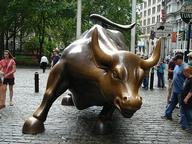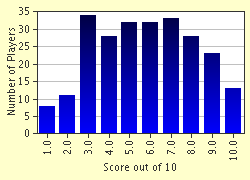Quiz Answer Key and Fun Facts
1. How many stocks make up the Dow Jones Industrial Average?
2. There are many types of mutual funds with a range of investment goals - to generate income, preserve your nest egg or take a flyer. Which of the following funds is the most conservative mutual fund investment?
3. Since 1929, what has been the average percentage return of the stock market?
4. You're 32 years old, just starting to invest and you have $1000 burning a hole in your pocket. For the long term, and to stand the best chance of a good return, where should you put that money?
5. What is the advantage of a load mutual fund versus a no-load mutual fund?
6. A bloke you meet in a bar gives you what he claims is a hot tip on a sure-thing stock that's about to break out and go through the roof. What is the best thing to do with this information?
7. Of course there are expenses associated with mutual fund ownership. Nothing's free. Which of the following types of funds will have the lowest annual expenses?
8. When choosing where to invest your hard-earned money, which of the following should you consider?
9. According to most experts how often should you check your investment holdings?
10. Which of the following is NOT a suitable investment for an investor with a 15-year time horizon and a moderate aversion to risk?
Source: Author
nutmeglad
This quiz was reviewed by FunTrivia editor
bloomsby before going online.
Any errors found in FunTrivia content are routinely corrected through our feedback system.

